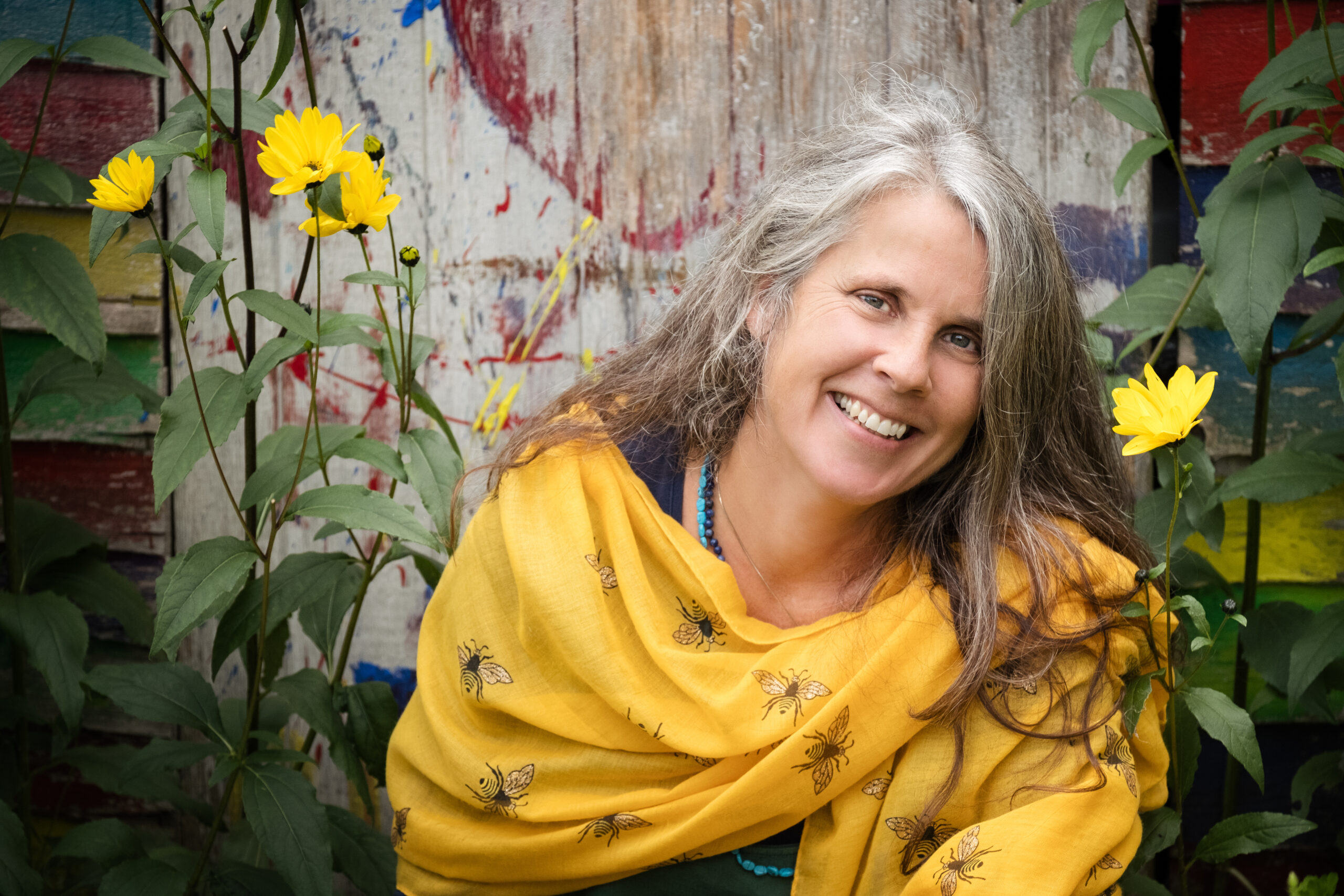My son was nearly five when we moved to our new home. Life was difficult for us as a family at that time. We were struggling with the stress of low income and debt, I was suffering with the trauma of complex grief alongside the demands of being a full-time carer for my son, who had been diagnosed with type one diabetes when he was two. It had been a hard four years since his birth, and I needed to see if we could put down new roots and make a life grow.
The house was on a new social housing estate, in a little village in Cumbria. Each house had a patch of newly sown blank grass for a garden, and little else. Soon after we moved in, neighbours started to ask when my son would be starting at the local school. When I told people we were home-educating, I was quizzed about how would he learn to read and write, and how could I teach him what he needed to know. I told them that childhood was short and for now, we would learn through play.
When I suggested to my young son that we grew a garden, he was excited. He drew pictures of magical forests and dinosaur lands, great castles, and flowers that grew higher than the house. We took these pictures as our plan, and spent day after day digging out the rubble and stone buried beneath the topsoil; the remnants and rubbish left behind by its former industrial life. With no money to spend, we used what others threw away or dug out: wood pallets from a compost heap, old drainpipes for plant pots, a broken cot for a pea-frame. We rescued weeds from the building site that surrounded us and planted them into our newly dig beds, and sowed seeds gathered from waysides. The environmental principles of zero-waste were fundamental to everything we used.
It was physically hard but we had fun and slowly, our magic garden took shape. As it did, the garden became our classroom and through it, my son learnt many things: biology, climate science, history, art, cookery, life skills, philosophy, horticulture and more. These lessons were shared through and stories and play, as we dug and sowed, harvested and tended.
Like all deep learning, it was always both ways. What knowledge I shared from experience, he returned with the curiosity and magic that is the natural state of being a child. As we dug out the rubble from the broken ground, he picked out stones embedded with fossils that brought a long-dead lake to life, so that dinosaurs swam alongside our life; his little mouth finding its way around words I could hardly pronounce. When rain flooded our beds, we learnt about wetland habitats and the wildlife that needed them to thrive. When he made potions from crushed nettle and dock, we learnt together the medicine they could bring, gathering wisdom from the wild women who lived long ago.
The garden taught him about seasons and cycles, about what dies away and what would grow. When my mother was diagnosed with terminal cancer and I became her carer at the end of her life, it helped my son and I talk about death, and what it means to let go. During the months my mother was well enough, she would bring gifts of plants dug from her garden, sharing her knowledge with my son, heads bent and deep in discussion. After her death, he could point out the plants that his nana had given him, and tell me the story of each. The fact that he was able to share this time with her before her death is something that will remain precious to him, and helped to form the strongest bond between my mother and my son. Knowing that the garden held these anchor-plants of her life was important to us, and remains so, even though we have now moved. When we packed up our home, we took with us cuttings of each, to plant where we live now.
How much of the knowledge I carry within me was planted there by my mother, my sisters; by the women who nurtured and inspired me when I was young? It is only as I grow older that I realise how much of them I carry within me, especially now my mother and eldest sister are gone. I like to think that in the soil and seed of the garden, this knowledge has been passed along to my son.
His tenderness towards everything living, and his wonder at what grew, restored a delight in me that I had lost in the weariness of grief and life. Where others saw weeds and waste, he saw beauty and potential. He taught me to see it this way too.
At nearly sixteen now, his adult life is tantalisingly close. There are days that I worry for his future; for the future of this world. It seems so full of sorrow right now, and nothing feels certain. Then, I remember the garden that we grew together, and I know that through it, we learnt the most important thing of all: that we are guardians of this beautiful earth, and though this life is often hard, and sometimes broken, it is also full of wonder, and joy.
Victoria Bennett is the author of the memoir All My Wild Mothers - Motherhood, Loss and an Apothecary Garden

